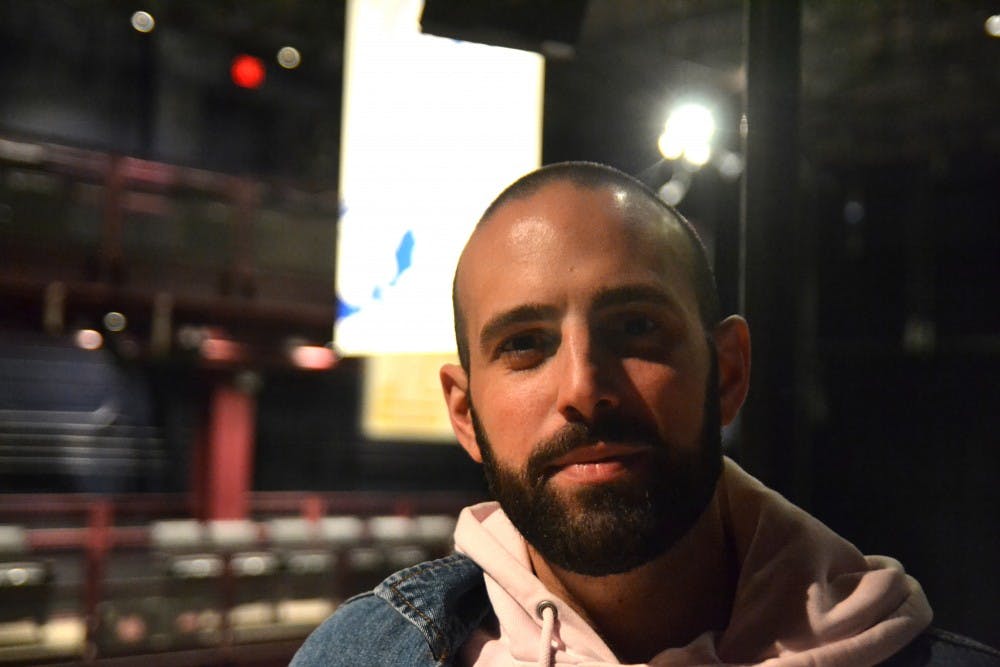The Indiana Daily Student sat down with master of fine arts student and playwright Aaron Ricciardi to talk about his new play, “Only Child,” produced as part of IU's "At First Sight: A Festival of New Plays." The play runs Feb. 22, 23, 26 and 28 and March 1 and 2 at the Wells-Metz Theatre.
Last year, Ricciardi produced “Nice Nails” for At First Sight.
Responses have been edited for brevity and clarity.
IDS: What’s the premise of this work?
Ricciardi: It’s about a boy who enters into an inappropriate relationship with his teacher. We never see them at school, we only see them at her house, or away on a vacation with her and her family. I’ve written it in such a way where it’s a little confusing what’s happening for a lot of the play, until the end, when you hopefully get it.
It’s based on a real relationship I had as a child. It’s pretty autobiographical. I’m using the structure of the play in order to replicate for the audience, in their viewing experience, the experience that I had.
The central character is the prince of a small kingdom. By the end of the play, you realize he’s not the prince of anything. If anything, he’s just a boy who’s her student.
How does this work into the play? Is this something the people around him also believe, or is it all in his head?
It’s just accepted in the first scene. You see the woman, Jess, who’s his teacher. Her husband comes home from work, and she tells him she got a new student, and he’s the prince of a small kingdom she’s never heard of, but she looked it up and it’s true. Whenever we see him, he has a crown on his head. Towards the end of the play, we lose the crown, and we see him as just a boy.
What themes or ideas is the show particularly interested in?
It’s interested in the idea of childhood and the loss of it early and what that does to a person. The teacher character has a child, but the actor who plays that child is a woman who’s in her 60s. She also plays the ghosts of that teacher character's, Jess’s, mother.
There are some scenes where she goes from playing this baby to playing a 65-year-old chain smoker who’s dying of cancer. She’s always flipping back and forth, which is one of my tools in disorienting the audience.
You see that that women, the teacher, had an inappropriate relationship with her mom, and you learn that her husband had, what I suggest, is an inappropriate relationship with his brother and with his dad. It’s asking these questions of, “When we treat children like adults, what does that do to them?”
That’s a very complex emotion and situation.
Something that’s been interesting in the production that the actor playing the prince has, we haven’t spoken about this, but it seems to me he’s been coming up against how to negotiate his feelings about the story as a twenty-year-old man with how the character feels in the moment.
When he’s in a situation where she’s touching him intimately, it seems like his instinct is to express his discomfort with it, when that’s not what the character does in that scene. The character goes along with it because the person who wants him to do all these things has a lot of power over him. He's put on a pedestal. He thinks everything's fine.
From a lot of different perspectives, this seems challenging to write.
This was the easiest thing I’ve ever written in my life. It just came out of me because it’s my story. It’s remarkable how much more difficult it was to write “Nice Nails.” That play was torture, there was nothing fun about it, ever. I never had fun writing that play. It was honestly, like, fucking torture. This fell out of me. I don’t remember writing it.
What do you aspire this play to do for an audience?
I hope it makes them look a little more closely at the things in life that seem a little funny, but they ignore. A lot of what I look back on in my experience is this feeling of so many people thought that what was going on was — just struck them funny, but they assume that everything is fine.




